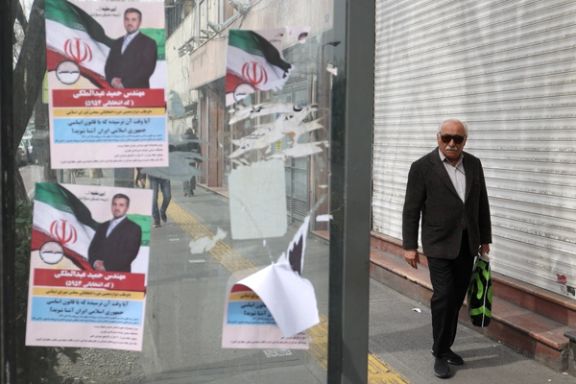Key Issues In Iran's March 1st Elections: What's Missing

The 2024 elections in Iran mirror past ones under the Islamist regime in various aspects, such as the arbitrary disqualification of candidates, and dwindling participation rates.

The 2024 elections in Iran mirror past ones under the Islamist regime in various aspects, such as the arbitrary disqualification of candidates, and dwindling participation rates.
Amid numerous crises gripping the nation, the regime, under the control of its 84-year-old ruler Ali Khamenei, is striving desperately to achieve a high turnout to demonstrate that it still maintains popularity and a degree of legitimacy.
However, the rejection of hundreds of candidates has led to voter disillusionment and a shortage of candidates in certain provinces rendering the Assembly of Experts elections virtually non-competitive. There is also public disillusionment regarding the elections' impact, and the presence of mobile ballot boxes, which facilitate fraud, accounting for up to one-third of all voting stations. Similarly to prior elections, the Interior Ministry has reduced the eligible voting population from 65.7 million to 61 million, artificially inflating the turnout figures.
However, several distinctive features characterize this particular election cycle.
Lack of unity among hardliners
Facing no serious challenge after disqualifying rival candidates, the principlists, or pro-Khamenei hardliners, have no intention to unite. Instead, four sub-factions have emerged, each with its own list of candidates. Amidst this chaos, Ali Motahhari, an independent conservative, is offering his list of ex-officials and lesser-known university students for Tehran. This further compounds the confusion among the small but motivated pro-regime constituency.

Lack of issue-based debates and campaigns
Neither individual candidates nor groups and coalitions have articulated their plans should they enter parliament. No public discourse on issues is evident. In a society grappling with myriad challenges such as near 50-percent inflation rates, water scarcity, educational dropout rates, child labor, soaring healthcare costs, alarmingly high unemployment (up to 40 percent for university graduates), brain drain, skilled worker emigration, increasing crime rates, mental health issues affecting up to 25 percent of the population, and a housing crisis, the silence on these critical matters is striking and begs for public engagement.
Despite all these, candidates vie primarily to demonstrate their allegiance to the regime and Supreme Leader Ali Khamenei. They recognize that the public remains skeptical no matter what they pledge yet anticipate securing seats without addressing these concerns. Their focus is not on serving the people but on appeasing the ruling elite.
Lowering voter ID requirements
This time it appears people can vote as many times as they want. Their national IDs will not be stamped after casting a ballot and voters can show other IDs. According to the Interior Ministry’s election headquarter, voters can substitute “birth certificates, driver’s license, military service card and passport.” There is no local voting registration system in Iran. It seems that the government needs more votes and has opened the gate for as many as it can get.
Public apathy
Not only are over 75 percent of the population not planning to vote, but a significant portion of them are also unaware of the upcoming election in Iran. According to a Gamaan survey titled "Iranians' Attitudes Towards the 2024 Elections," conducted from January 31st to February 7th, 2024, approximately 38 percent of the population were unaware of the timing of the elections scheduled for March 1st.
Seriousness
Even the regime's propaganda machinery doesn't treat this political event with gravity. A good example is the comic street shows to encourage participation. Weeks before the controversial election day, the Ministry of Islamic Guidance and Culture hired Basij members to perform street shows to send supposedly convey the message that the “enemies” (Israel and the US) discourage people from voting. In these dramatic displays, they urge citizens “to strike a blow against imperialism” by turning out to vote in large numbers.
Above all, elections
The fundamental requirements for any election include freedom of speech, media, association, and assembly. However, under the Islamist regime, these freedoms are nonexistent. Citizens are only permitted to engage in state-sponsored rallies, parrot state-approved messages, join government-endorsed parties, and consume content from state-controlled media outlets. In such a stifling environment, genuine political competition, substantive debates on issues, and truly free and fair elections become unattainable.